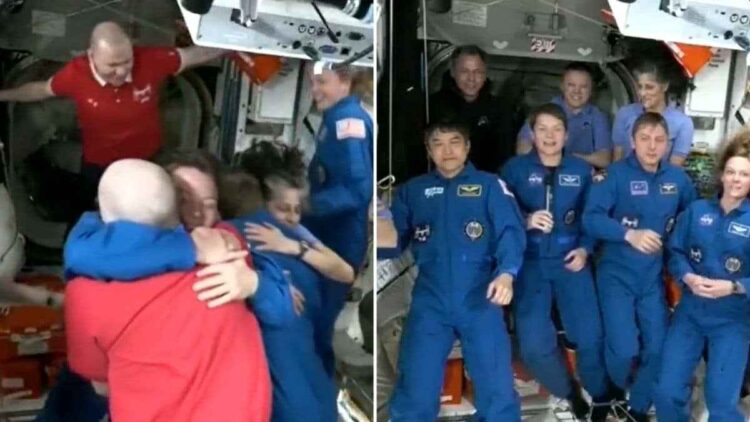It may be fun to see astronauts floating inside the international space station, but the absence of gravity has a long effect on the passengers living in space, who experience dizziness, nausea and unstable move when returning to Earth.
NASA astronaut Sunita Williams and Buch Willmore and Russian astronaut Alexander Gorbunov are scheduled to return to Earth from SpaceX’s dragon spacecraft on Wednesday.
For Boeing’s new Starlineer Capsule test pilots Williams and Wilmore, the eight -day mission was drawn for more than nine months, as his spacecraft became unsafe due to helium leaks and thruster failures and had to return empty in September.
Astronauts, who have traveled earlier on space missions, have talked about difficulty walking, poor vision, dizziness and a situation called baby ft, in which the thick part of the skin of astronauts go out and it becomes soft like a child.
“When astronauts return to Earth, Houston -based Belller College of Medicine said in a note on the changes in the body, they are immediately forced to be adjusted again according to the gravitational of the earth, and they may have problems in standing, stabilizing and turning their vision, stabilizing and turning their vision. For their safety, the returning astronauts are often settled on a chair.”
It takes several weeks for astronauts to re -adapt themselves to life on earth. The vestibular organ located inside the ear helps to keep the human body balanced while walking on the earth by sending information about gravity to the brain.
Japanese space agency Jaxa said, “In low gravity of space, information obtained from vestibular organs changes. It is believed that it confuses the brain, causing space disease. When you come back to Earth, you again experience the effects of Earth’s gravity, and thus sometimes there are ‘gurus, the symptoms’, which are sometimes the symptoms.
On Earth, gravity draws blood and other physiological fluids into the lower part of the body, but for astronauts experiencing weightlessness in space, these fluids accumulate in the upper parts of the body, making them look puffed up.
Jaxa said, “astronauts returning to Earth have a problem of frequent dizziness when standing, called orthostatic hypotension. This is because gravitational on earth is stronger than in space, and it is more difficult to deliver blood from the heart to the head.”
Due to lack of gravity, the density of bones decreases significantly and often it is not compensated. According to NASA, every month in space, the bones of astronauts tolerating the weight of astronauts are about one percent less dense, if they do not take care to overcome this deficiency.
To deal with this, a strict exercise program for astronauts has been held at the International Space Station (ISS).
NASA said, “It is necessary for astronauts to exercise for two hours per day, including using a treadmill or stable bicycle, so that the damage to the bones and muscles in zero gravity can be avoided. Without this exercise, astronauts will be unable to walk or stand on the earth after swimming in space, without this exercise.
Canadian astronaut Chris Hadfield reported that he had experienced a weightless tongue while returning from the international space station in 2013.
Headfield had said, “As soon as I landed, I felt the weight of my lips and tongue and I had to change my way to talk. I did not realize that I had learned to talk to the weightless tongue.”
Astronauts can be more sensitive to infection and disease due to weak immune system.
The European Space Agency’s flight surgeon Serji Walker said in a blog post on the agency’s website, “Although we see the immune cells in space do not behave in the way they should do, but yet there is no serious infection at the space station, so the transformed behavior of cells does not directly transfer to immune protection.”










